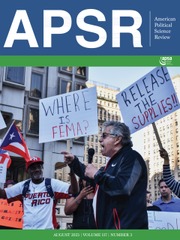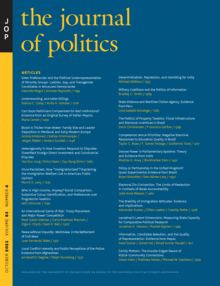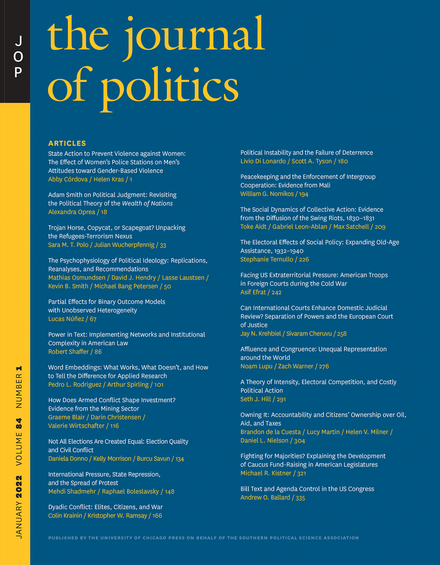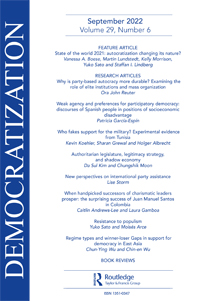
Home
I am a Professor in the Department of Political Science at the University of Wisconsin–Milwaukee. My research is in the areas of comparative political institutions, authoritarianism, elections, democratization, comparative political economy, and Russian politics. Navigate the links above to learn more about my research and teaching.
Recent Publications

“Endogenous Popularity: How Perceptions of Support Affect the Popularity of Authoritarian Regimes” (with Noah Buckley, Kyle Marquardt, and Katerina Tertychnaya) Recent Research in American Political Science Review.
We study whether the perception of an autocrat's popularity can affect actual support for an authoritarian leader. Using a novel combination of framing and list experiments, our results suggest that Russians become genuinely less supportive of Putin when presented with information that suggests he is unpopular.

“Civic Duty and Voting under Autocracy” Recent Article in Journal of Politics.
This article explores the duty to vote under electoral autocracy. Using original survey data from Russia, I present evidence that most voters feel an ethical obligation—a civic duty—to vote. Because autocratic regimes often penetrate and politicize the state, I argue that opposition voters are less likely to revere the state and less likely than regime supporters to believe that voting is a civic duty. The theory and findings suggest that authoritarian incumbents have an inherent mobilizational advantage: their supporters feel a duty to vote, but regime opponents do not.

“Do Authoritarian Elections Help the Poor? Evidence from Russian Cities” (with Quintin Beazer) Recent Article in Journal of Politics.
Do local elections under autocracy help the poor? We argue that local appointees in electoral authoritarian regimes have political incentives that undermine public service provision; regime leaders’ preoccupation with national electoral control encourages them to overlook local governance problems if subnational officials can still deliver requisite votes in national elections.

“Why is party-based autocracy more durable? Examining the role of elite institutions and mass organization.” Recent Article in Democratization. (Winner of Frank Cass Award for Best Article published in Democratization in 2022)
A number of studies show that autocracies with ruling parties are more long-lived than those without. Much of the literature attributes this to party institutionalization at the elite- level, which is said to reduce elite schisms. Others point to the ability of grassroots party organizations to mobilize mass support. There is very little empirical research that examines these different mechanisms. This paper fills that gap using new data from the V-Party database, which provides detailed expert-coded information on the attributes of all autocratic ruling par- ties between 1970 and 2019.